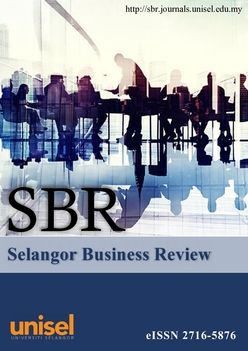Wassiyah intention among Muslims in Selangor: The role of religiosity in planned behaviour theory
Abstract
The paper aims to determine the relationship between the components of the theory of planned behaviour (TPB) and the intention to perform Wasiyyah. The paper also discusses how religiosity impacts the relationship between the TPB components and the intention to perform Wasiyyah. This study conducts a quantitative method to collect data via a self-administered questionnaire to test the research model. Two hundred responses were received from Muslim individuals in Selangor. The model was tested using multiple regressions. Results indicated that two components of TPB (i.e., cultural values and knowledge) influence the intention to perform Wassiyah. Results also indicate the salient role of religiosity as a moderator on its impact on the relationships between TPB components and the intention to perform Wassiyah.





 3,026
3,026 2,412
2,412 1,466
1,466